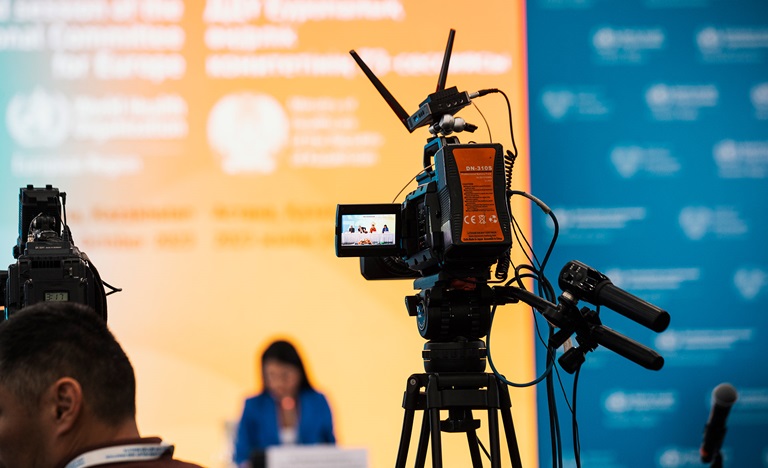
Newsroom
Media Contacts
![]()
WHO/Europe Press Office
Email: eupress@who.int
Latest news
All →Tackling a long-running challenge: Greenland is developing recommendations for a national alcohol policy
The Government of Greenland, known as Naalakkersuisut, in collaboration with the Centre for Public Health in Greenland and WHO/Europe, have launched a project to develop recommendations for a new national alcohol policy, addressing a long-running public health challenge.
When properly formulated and adequately resourced, a national alcohol policy ensures that alcohol use and its consequences receive the appropriate attention in the country and prompts the government to take a coordinated approach in developing laws, regulations and services related to alcohol. In Greenland, implementing a national alcohol policy that addresses the considerable harm and societal impact of alcohol on individuals, families, communities and society at large would enable priority setting and effective action.
Therefore, Naalakkersuisut has initiated a collaborative process to develop recommendations which will form the basis for a multi-year, evidence-based national alcohol policy. This policy will focus on breaking the cycle of social inheritance and protecting the health and well-being of children and youth.
According to the most recent Greenland Population Health Survey from 2018–2019, 35% of young people aged 15–34 engage in heavy episodic drinking, consuming at least 60 grams or more of pure alcohol on at least one occasion in the past 30 days.
"Alcohol use causes the greatest harm to those who are most vulnerable,” said Dr Hans Henri P. Kluge, WHO Regional Director for Europe. “Alcohol control policies, when well-conceived and implemented, safeguard the entire population, especially those who are at the highest risk of harm. Initiating the development of national alcohol policy recommendations marks a significant achievement for Greenland, promoting health and well-being for all, leaving no one behind.”
The initiative originates from Inatsisartut (Parliament of Greenland) resolution FM/2023/67. The resolution stipulates that the analysis performed should focus on the well-being of children and youth and include an assessment of the human and financial resources required for implementing the recommendations, and that the recommendations should be developed through a multistakeholder consultative process. Lastly, the resolution stipulates that the recommendations should be finalized and disseminated by the spring of 2025. The development of recommendations for a national alcohol policy marks a significant milestone for Greenland. The process will adopt an inclusive and participatory approach, engaging key stakeholders to foster the emergence of a consensus and shared sense of ownership.
“The goal is that the recommendations will become the foundation for the development of a visionary, long-term and effective national alcohol policy,” said Agathe Fontain, Minister of Health of Greenland. “It is my great hope that we can unite around a common vision for the future: a strong population in a safe society, where no children or adults are harmed by alcohol.”
Throughout this process, WHO, via its Regional Office for Europe based in Copenhagen, will play a vital role by recommending cost-effective measures evidenced to reduce alcohol consumption and mitigate its harmful impacts.
WHO/Europe has provided guidance to a number of other governments in the WHO European Region (covering 53 Member States across Europe and Central Asia) on developing evidence-based national alcohol policies (NAPs), leveraging WHO staff and networks to access leading experts on the issue.




